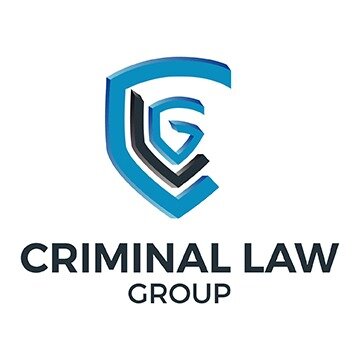Best Drug Crime Lawyers in Sydney
Share your needs with us, get contacted by law firms.
Free. Takes 2 min.
List of the best lawyers in Sydney, Australia
About Drug Crime Law in Sydney, Australia
Drug crime in Sydney, Australia, encompasses various offenses related to the possession, use, sale, supply, cultivation, and importation of illegal drugs. The Australian legal system, particularly under the jurisdiction of New South Wales (NSW), enforces strict drug laws to minimize drug-related harm to individuals and the community. These laws are in place to control the distribution and use of illicit substances and to impose penalties as a deterrent. Law enforcement agencies are vigilant in their efforts to combat drug crime, and penalties for violations can range from fines and rehabilitation programs to lengthy imprisonment depending on the severity and nature of the offense.
Why You May Need a Lawyer
Individuals may require legal assistance in drug crime matters for numerous reasons. If arrested or charged with a drug-related offense, understanding the complexities of the law is crucial. Legal representation can help navigate the justice system, advocate for defendants’ rights, and aim to achieve the best possible outcome. Common situations where legal help is essential include being accused of drug possession, dealing, trafficking, or manufacturing. Furthermore, individuals might seek advice to understand their legal rights during police encounters, help with court procedures, or assistance with appealing a conviction.
Local Laws Overview
In Sydney, the principal legislation governing drug crimes is the Drug Misuse and Trafficking Act 1985 (NSW). This Act outlines various drug-related offenses and associated penalties. Key aspects include:
- Possession: Being in possession of illegal drugs is a criminal offense in NSW and can result in fines and/or imprisonment.
- Supply: The sale or distribution of illegal drugs carries severe penalties, with penalties escalating based on quantity involved.
- Trafficking: Importation or exportation of prohibited drugs can lead to significant prison sentences.
- Cultivation: Growing or manufacturing drugs can lead to serious charges, often implicating additional charges related to supply and trafficking.
Laws also provide for the diversion of first-time or minor offenders into rehabilitation rather than prosecution, aiming to reduce reoffending and address underlying substance abuse issues.
What is considered a 'drug' under NSW law?
A drug, under NSW law, includes substances listed under the Drug Misuse and Trafficking Act 1985. This includes well-known illicit drugs such as cannabis, cocaine, ecstasy, and heroin, among others.
What are the penalties for first-time drug possession?
The penalties vary depending on the type and quantity of the drug. For small quantities, first-time offenders might receive a fine or be referred to a drug diversions program instead of facing criminal charges, depending on the circumstances.
Can I be charged if drugs are found in my home or car?
Yes, if drugs are found in your personal property (such as your home or car), you can be charged with possession, unless you can provide evidence that proves they weren’t in your possession or control.
What is the difference between 'supply' and 'trafficking'?
Supply generally relates to the distribution or sale of smaller quantities within Australia, while trafficking involves larger scale movement or distribution, often including international borders.
Can legal drugs lead to drug crime charges?
Yes, the misuse of prescription medications or the manufacture/supply of such substances for non-medical purposes can result in legal charges.
Are there defenses available for drug crime charges?
Defenses may include arguing lack of intent, mistaken identity, entrapment, or demonstrating that the substance was not actually illegal. Each case is unique and should be assessed by a legal professional.
Do police need a warrant to search for drugs?
Police generally need a warrant to perform a search. However, they can conduct a search without a warrant if there is reasonable suspicion of drug-related activity.
How does a criminal record impact future opportunities?
A criminal record for drug offenses can affect future job prospects, travel opportunities, and more. Legal advice can assist in understanding these implications and possibly mitigating them.
Can sentences for drug crimes be appealed?
Yes, sentences can be appealed if there is reason to believe that the sentence is unjust or if there was a legal error in the handling of the case.
What should I do if I'm arrested for a drug crime?
If arrested, it is essential to remain calm, exercise your right to remain silent, and request to speak with a lawyer as soon as possible.
Additional Resources
For individuals seeking further assistance and information, the following resources may prove valuable:
- Legal Aid NSW: Provides free legal advice and services for eligible individuals.
- NSW Police Force: Offers information about reporting and the legal processes related to drug crimes.
- LawAccess NSW: A telephone helpline that provides free legal information and referrals.
- NSW Courts: Facilitates informational resources on procedures and past decisions related to drug crimes.
- Drug and Alcohol Research and Training Australia (DARTA): Educational and support resources concerning substance use.
Next Steps
If you find yourself in need of legal assistance related to drug crimes, it is advisable to consult with a legal professional specializing in criminal law as soon as possible. Begin by compiling all relevant documentation and evidence pertaining to your case. Reach out to a reputable lawyer or legal firm experienced in drug crime defense in Sydney. Making use of free or low-cost services, such as Legal Aid NSW, can provide essential guidance and possibly representation if you qualify. Finally, remain informed and engaged throughout the process, ensuring you understand your rights and responsibilities.
Lawzana helps you find the best lawyers and law firms in Sydney through a curated and pre-screened list of qualified legal professionals. Our platform offers rankings and detailed profiles of attorneys and law firms, allowing you to compare based on practice areas, including Drug Crime, experience, and client feedback.
Each profile includes a description of the firm's areas of practice, client reviews, team members and partners, year of establishment, spoken languages, office locations, contact information, social media presence, and any published articles or resources. Most firms on our platform speak English and are experienced in both local and international legal matters.
Get a quote from top-rated law firms in Sydney, Australia — quickly, securely, and without unnecessary hassle.
Disclaimer:
The information provided on this page is for general informational purposes only and does not constitute legal advice. While we strive to ensure the accuracy and relevance of the content, legal information may change over time, and interpretations of the law can vary. You should always consult with a qualified legal professional for advice specific to your situation.
We disclaim all liability for actions taken or not taken based on the content of this page. If you believe any information is incorrect or outdated, please contact us, and we will review and update it where appropriate.















